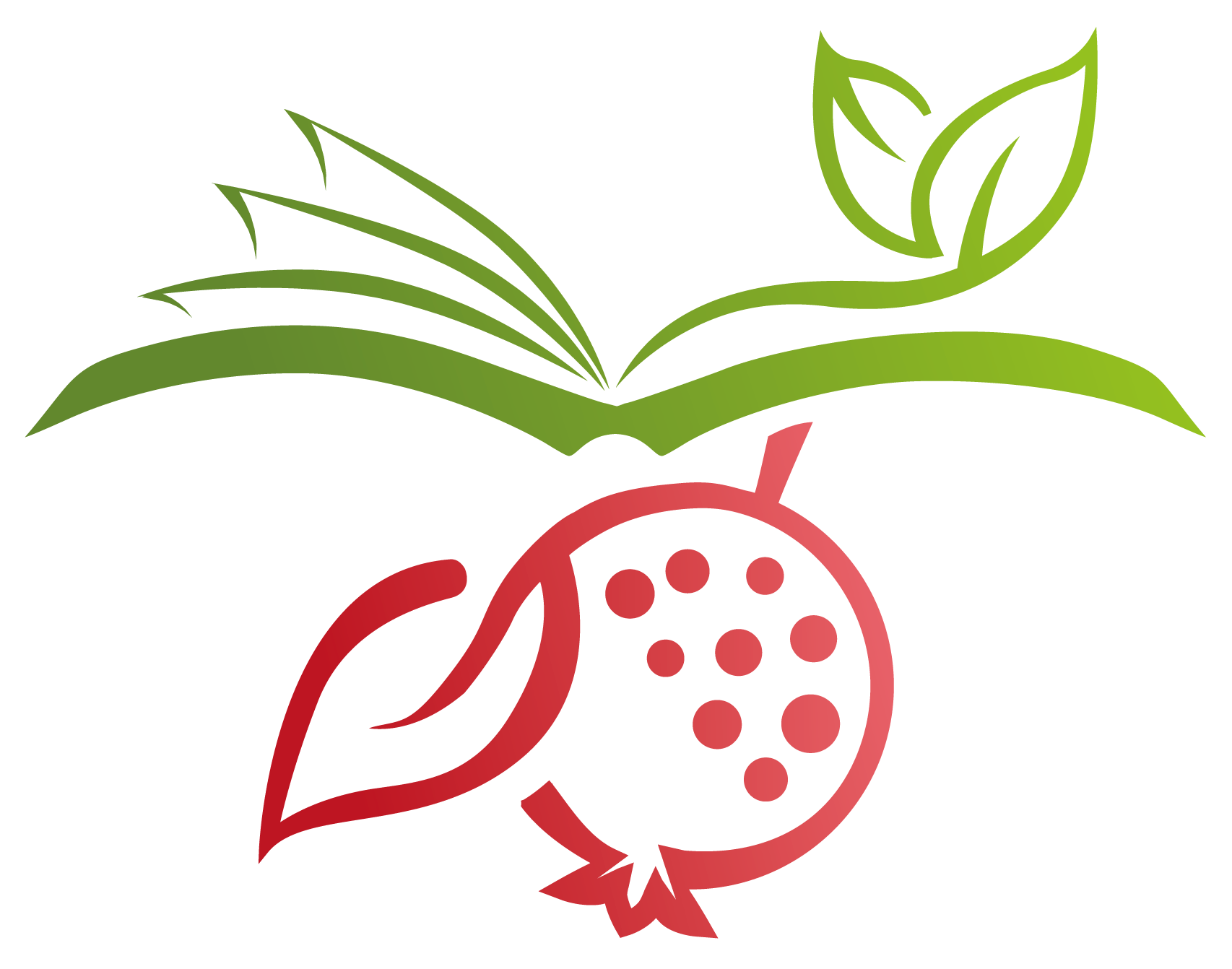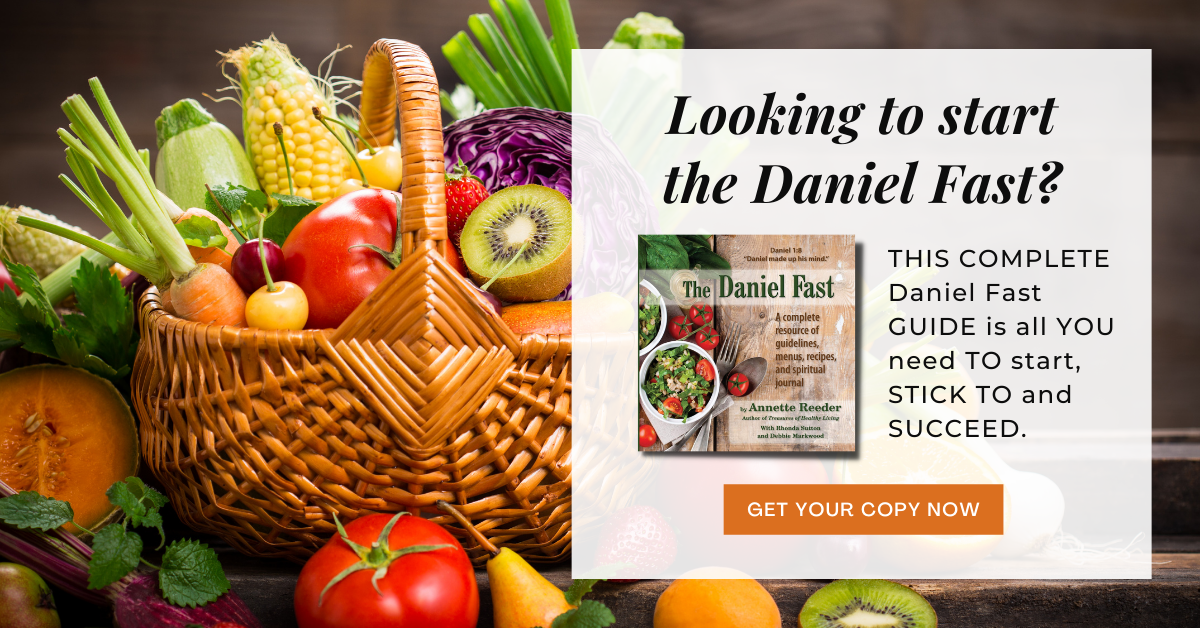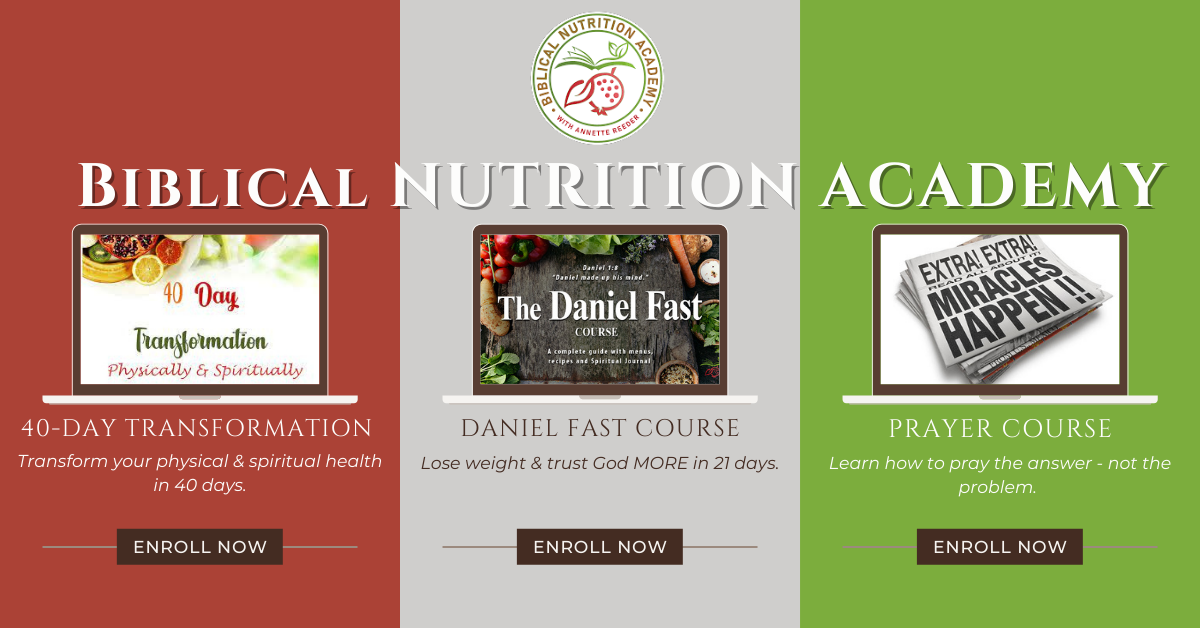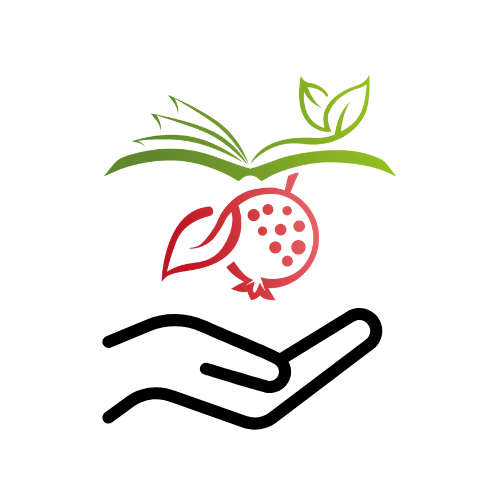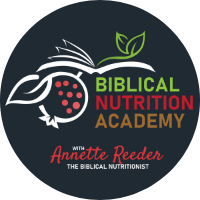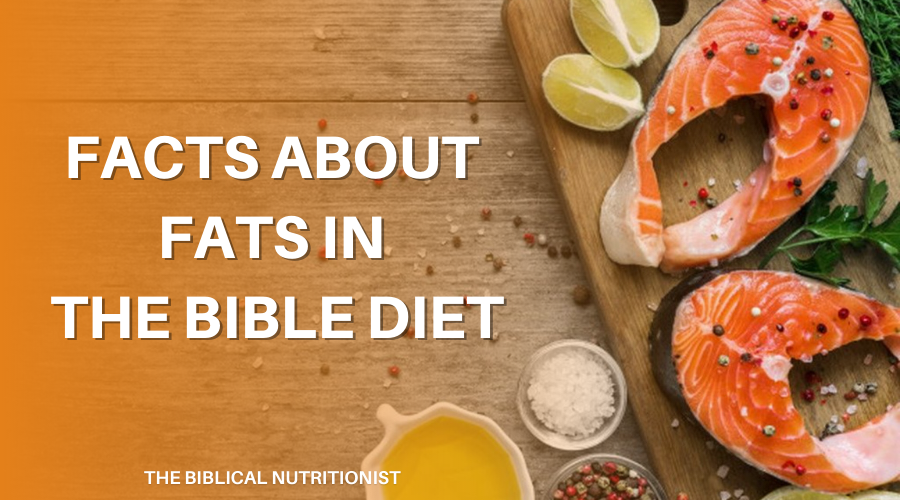
When it comes to fat, we have the good, the bad, the ugly and the confusing. But how do you know one from the other? What are the facts about fats in the Bible?
The Bible provides a lot of information on how to maintain good health. A part of that plan is for us to have the right balance in the foods He called ‘good’ for us. This includes grains, meats, vegetables, fruits, and oils.
Read to the end to learn fun tips for beautiful skin!
Oils and fats are both mentioned in the Old Testament (Covenant), but only oil is mentioned in the New Testament. The Hebrew word shemen and the Greek word elaion are the words most often used for oil in the Old and New Testaments, and they refer to the oil from olives.
Shemen was used for lighting, anointing and burning (see Exodus 25:6, 35:28). It was also used for cooking purposes (Numbers 11:8; Deuteronomy 8:8).
In the New Testament elaion was primarily used for lighting and anointing (Matthew 25:3-4, Mark 6:13, Luke 7:46, Hebrews 1:9, James 5:14).
Fat is another issue. When the Bible talks about fat, it is typically referring to fats used for sacrifices and eating. For instance, Leviticus 3:17 says, “This shall be a perpetual statute throughout your generations in all your dwellings; you shall eat neither fat nor blood.”
Dr Rex Russell, in his book: What the Bible Says About Healthy Living, says: “When Leviticus 3:17 forbids eating fat, it is not referring to the internal, marbling fat in the meat of clean animals, but to the two other kinds of fat: the fat of unclean animals and the cover fat, including that of clean animals.”All Fats Aren't Bad
Fats got a bad rap in the 90’s. Low-fat foods were touted as the best, healthiest choices. People and companies recommended and pushed highly processed foods as healthy alternatives to natural foods containing fat.
Following this craze people suddenly dealt with greater levels of hormonal imbalance, dry skin, acne, mental fog, and much more.
However, fats designed by our Creator bring healing to the body and softness to the skin.
Thankfully, some common sense has begun to reign again. Common sense that matches what God intended.
Natural foods - the Bible Diet - with natural fat are actually good for us. Especially when eaten in their healthiest form.
Why Are Healthy Fats Important
Fats are a concentrated source for energy as well as building blocks for cell membranes and hormones.
Do you remember those fat-soluble vitamins: A, D, E, and K?
These vitamins need fat from your diet as their “Amtrak” to move them to the body’s tissues.
Consuming a low-fat or no-fat diet increases the risk of a deficiency of vitamins A, D, E, and K in your cells. We definitely don’t want to do that!
These vitamins bypass the bloodstream and go directly into the lymph system to help build the immune system. They get there by using the healthy fats in our body to travel. Fats are a carrier for nutrition.
The blood stream is water-based, so it cannot transport these fat soluble nutrients.
No wonder so many people had problems after adopting a “low-fat” diet!
Good Fats Vs Bad Fats
All fats are not the same. Some fats are used well by the body for important jobs.
Other fats, those altered by man - remember the three principles? - clog up the body’s systems and cause disease.
Good Fats Facts
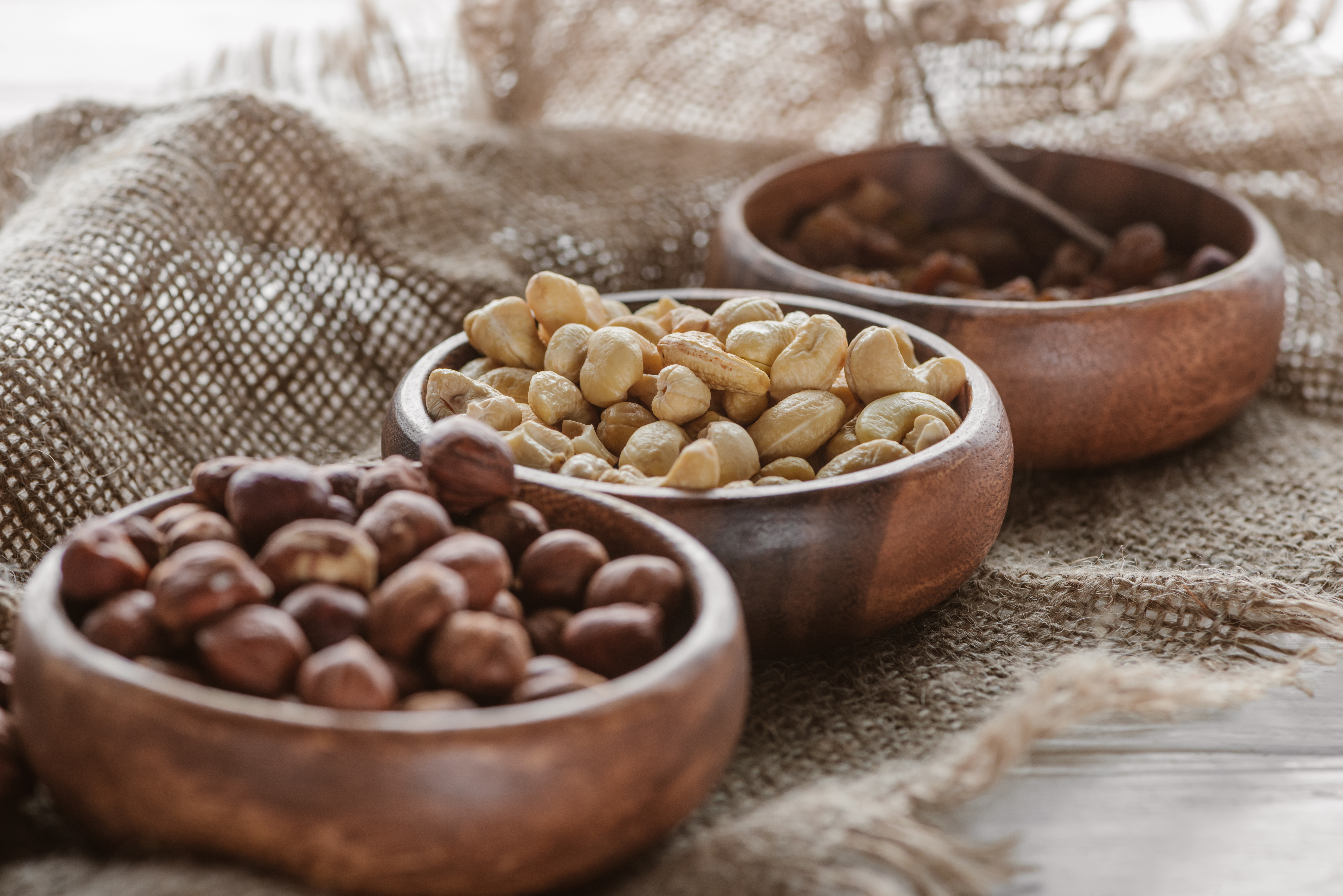
Good fats have many benefits, which include, but aren’t limited to:
- Highest caloric density, above protein and carbohydrates: 9 calories per gram
- One tablespoon contains 120 calories
- Act as an intestinal lubricant - this means less inflammation
- Keep you feeling full longer and satisfied after a meal by staying in the digestive tract longer - which protects the microbiome!
- Generate body heat
- Soothe the nerves and protect the nerve cells - perfect for people dealing with stress!
- Required by all body cells - Bingo!
Bad Fats Facts

Bad fats - altered by man fats - cause disease and other health problems. Consequences of consuming bad fats or too many good fats include:
- Excess fat is stored in the liver, arteries around the heart, and in all tissues
- High altered-fat consumption is linked to cancer, obesity, and heart disease
- Fat cells in the body can grow to 1000 times their size to store more fat
Some fats are created within the body and others are required from our food consumption. Those required from food are known as essential.
- Altered fats are not essential.
Fats In The Bible Diet
There are four basic types of dietary fats:
- Saturated
- Monounsaturated
- Polyunsaturated (Omega 3 & 6)
- Trans-fats
Saturated Fatty Acids

These fats once wore the scarlet letter as heart attacks were attributed to them. They come primarily from animal and dairy products and can be recognized easily as those fats which are hard at room temperature.
These fats replace good fats in the body’s cellular structure when there’s a deficiency of good fats in the diet. A high intake of these fats was once believed to increase cholesterol, heart disease, and cancer.
This theory was totally proven wrong when science saw again the truth of God’s design, even if they’d refuse to admit it.
Foods with saturated fat considered bad include:
- Bacon
- Beef
- Hard cheese
- Milk
Fatty meat products also have a high percentage of saturated fats.
Saturated fats considered good include:
- Organic or raw butter
- Coconut oil
- Palm oil - organic
- However, foods such as animal and dairy products farmed in organic ways have proven to be a healthier option than the medicated meats and dairy products. This has led to the confusion of bad versus good fats.
Fats And The Three Principles
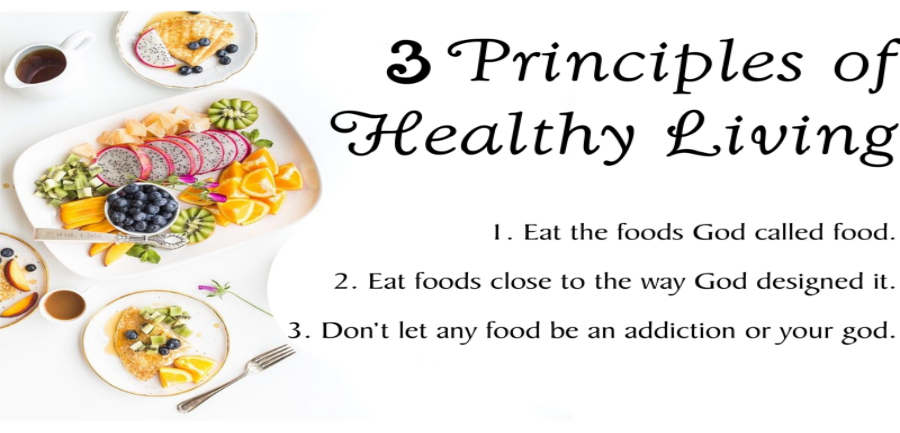
How’s one to know what to do?!?
Education is definitely the key, but everyone doesn’t have time to read reams of research.
Once again, we find ourselves back to the 3 Principles of Healthy Living. These timeless principles apply to all food/health questions.
These 3 Principles applied to fats show foods God called ‘good’ are always going to be life promoting(principle 1).
Foods altered by man (principle 2) - will always bring death to the cell. This altering can include the raising of animals in unhealthy environments, feeding animals GMO feed, heating fats to high levels, or treating oils with chemicals to strip of nutrition and create longer shelf life.
Each of these alterations leads to disease in our bodies.
Addictions to fats(principle 3) - ice creams, fried foods, restaurant foods - will continually lead to disease.
In addition to the fats we eat, saturated fatty acids can also be produced in our body by eating refined sugars. That’s why low fat diets rarely work and aren’t effective long term.
Saturated fatty acids are not essential to our diet and can contribute to obesity and health problems.
Saturated fatty acids produced by eating refined sugars interfere with essential fatty acid functions in the body and increase the chances of fatty liver disease.
For these reasons, always remember that every bite matters!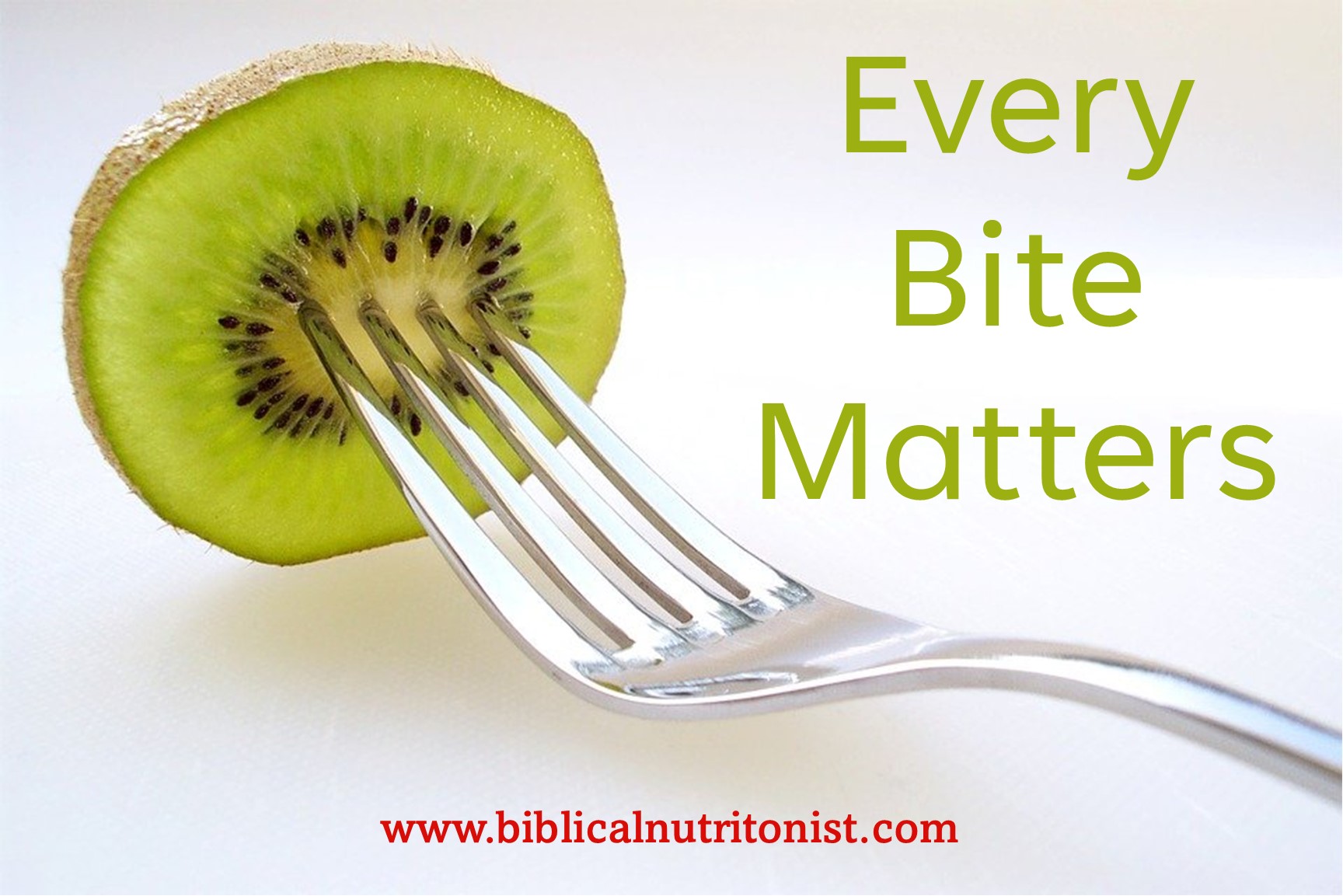
Monounsaturated Fatty Acids
Monounsaturated fats and polyunsaturated fats are close relatives to each other and are the “good guys.”
These fats remain liquid at room temperature. Good sources of monounsaturated fat include:
- Olive oil
- Almond
- Pistachio
- Pecan
- Avocados
- Nuts
- Seeds (including flax seeds)
Olive oil and some nuts also contain important polyunsaturated fat.
Polyunsaturated fatty acids
The polyunsaturated fatty acid family includes gamma linolenic acid (GLA), Linoleic acid, and alpha-linolenic acid (ALA) - omega 3s and omega 6s.
These names are long yet they are your best friend for anti-aging and hormonal happiness :).
Each has their own characteristics, many of which we’ll highlight below.
This gets a bit scientific, but hang in there! It’s so helpful to know how our bodies react to the foods God has provided and those man has created.
We want health and knowledge is a big part of acquiring it.
My people are destroyed for lack of knowledge. Hosea 4:6Omega 3
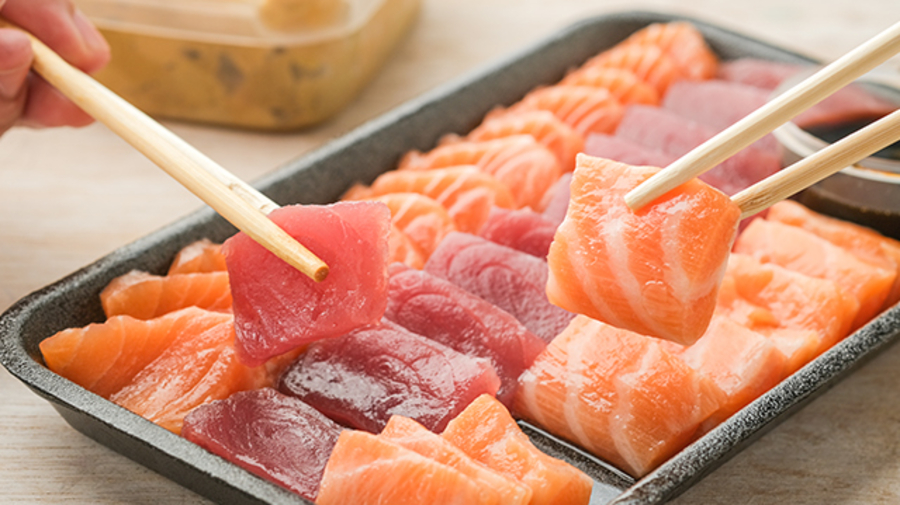
Omega 3 fatty acids are essential.
One name for them is alpha-linolenic acid (ALA). In addition to ALA, there are two other Omega-3 fatty acids: docosahexaenoic acid (DHA) and eicosapentaenoic acid (EPA).
Benefits associated with Omega-3 fatty acids include:
- Helps reduce all forms of arthritis
- Helps lessen viral infections
- Reduces cholesterol and triglycerides levels
- Lowers the risk of heart attack, stroke, and hardening of the arteries
- Improves psoriasis
- Improves immune response
- Lowers effect of harmful body chemicals
- Improves brain function - now we are thinking good things!
- Reduces severity of migraine headaches
- Improves liver and pancreas function
- Reduces cystic fibrosis
Omega 3 Foods
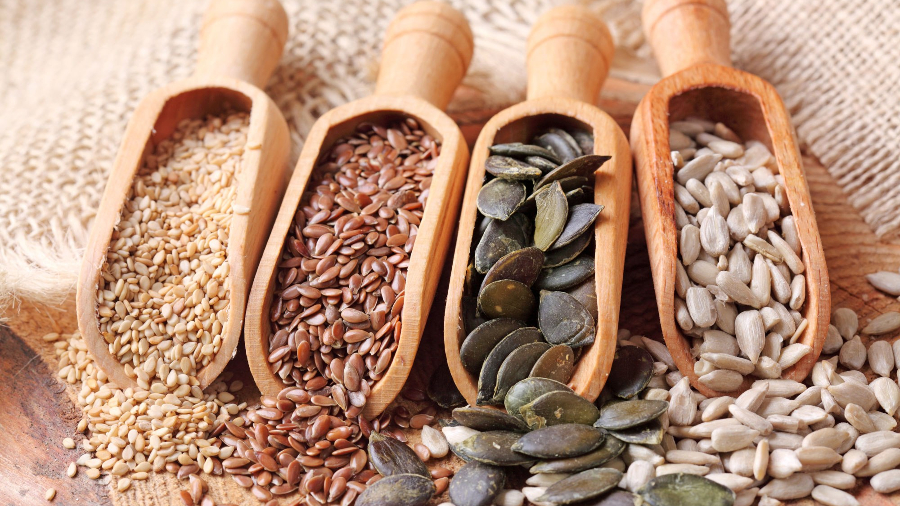
Good sources of Omega-3 include:
- Pumpkin seed oil
- Flax seeds
- Walnuts
- Pine nuts
- Pecans
- Cold water fish (sardines, mackerel, and salmon)
- Wheat germ - always included when you mill fresh wheat berries 🙂
- Sesame seed oil
- Sunflower oils
Omega 6
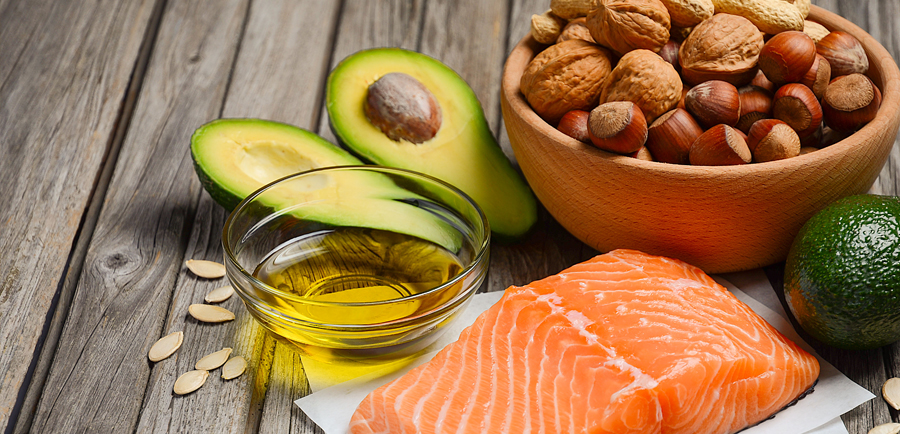
Omega-6 fatty acids are also essential fatty acids.
Benefits associated with Omega 6 include:
- Healthy brain function
- Normal growth and development
- Stimulated hair and skin growth
- Maintaining bone health
- Regulating metabolism
- Maintaining the reproductive system
- Helps with:
- Diabetic neuropathy
- Rheumatoid arthritis
- Allergies
- ADHD
- Breast cancer
- Hypertension
- Eczema
- MS
- PMS
Healthy Foods high in Omega 6 include:
- Meat: Poultry, fish
- Eggs
- Nuts and seeds
- Peanut Butter
- Safflower oil
Omega 3 Vs Omega 6
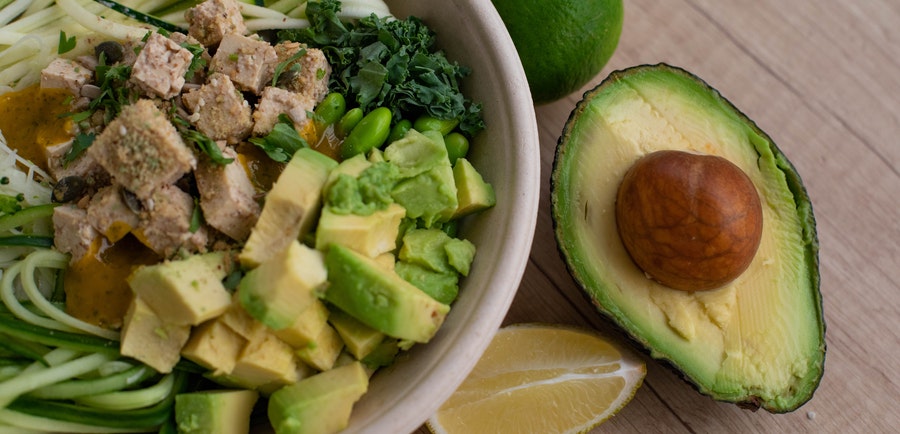
A healthy diet contains a proper ratio balance of omega-3 and omega-6 fatty acids.
Omega-3 fatty acids help reduce inflammation, and altered omega-6 fatty acids tend to promote inflammation. The typical American diet tends to contain 14-25 times more omega-6 fatty acids than omega-3 fatty acids.
Following the 3 principles, which is similar to the proven Mediterranean diet, has a healthy balance between omega-3 and omega-6 fatty acids.
If you want to reduce inflammation, a better balance between omega 3’s and 6’s is a must!
The Mediterranean diet doesn’t include processed and altered foods that create high percentages of arachidonic acid which leads directly to inflammation.
Dr. Couey explains that here in this excerpt from the video series: Treasures of Healthy Living.
[responsive_video type='youtube' hide_related='1' hide_logo='0' hide_controls='0' hide_title='1' hide_fullscreen='0' autoplay='0']https://www.youtube.com/watch?v=sO4jSjSMXvA[/responsive_video]
Foods in perfect ratio balance include: whole grains, fresh fruits and vegetables, fish, olive oil, and garlic. All God designed and approved! A perfect match for The Bible Diet!
Trans-Fats
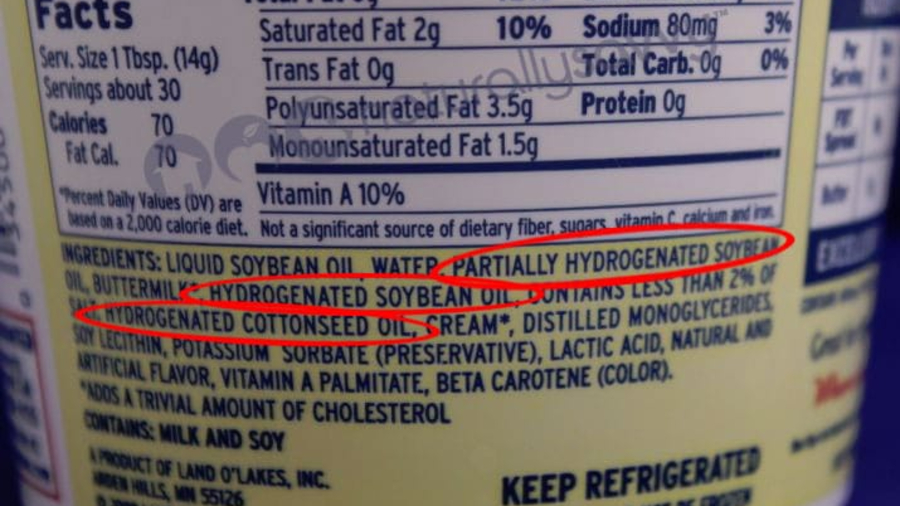
Trans fatty acids are formed when natural vegetable oil is heated and hydrogenated to convert a liquid into a solid. Man’s attempt to improve on God’s design continues to fail.
Although it prolongs the shelf life of popular foods, the process destroys the beneficial essential fatty acids.
Hydrogenated and partially hydrogenated oils are major sources of trans fatty acids. At this point it seems they have been eliminated from processed foods, yet I still find them in every aisle.
Good Fats Sources And Tips
Want to know how to pick the best fats and oils? Follow the tips below:
- Purchase cold or expeller-pressed oils (unrefined).
- Avoid hardened oils (hydrogenated or partially hydrogenated). Must read the label to be a wise shopper!
- Never reuse oil that has been used for frying.
- All oils should be stored in a cool, dark cupboard.
- Never consume oil that smells rancid. Or seeds or nuts that smell rancid.
- Olive oil maintains a longer shelf life than most oils.
- Don’t let oils heat up to smoking.
- To sauté or stir fry, use 2 tablespoons of water in the oil.
- Take one vitamin E capsule (must be a natural supplement and not synthetic), puncture it (small hole), and put the capsule in the bottle of olive oil. This will keep the oil from going rancid. Secret Trick 🙂
Healthy Fats In The Bible
Olives are always the first fat to consider when studying foods of the Bible.
Is any sick among you?...Let them...pray over him anointing him with oil…. James 5:14
The olive tree was the most valuable and versatile tree of biblical times. Many, many passages contain reference to olives, olive trees, olive yards and olive oils.
Remember the Good Samaritan? He treated the wounded traveler with oil and wine.
The Lord called your name, a green olive tree, beautiful in fruit and form. Jeremiah 11:16
Since the time of Noah, the olive branch has been seen as a symbol of peace. For the Jews, olive oil was a sign of God’s blessing, because it represents all that is best in life.
It’s been noted that no tree is more closely associated with the history of man and the development of civilization than the olive tree.
Olives and olive oil have been studied extensively to prove their healing properties. As always, God’s design is best!
Among the Arabs and Bedouins in the Middle East, it’s common to drink a small amount of olive oil each morning. One Arab told a friend of mine, “It’s good for greasing the bones!”
Olive Oil Confirms The Covenant
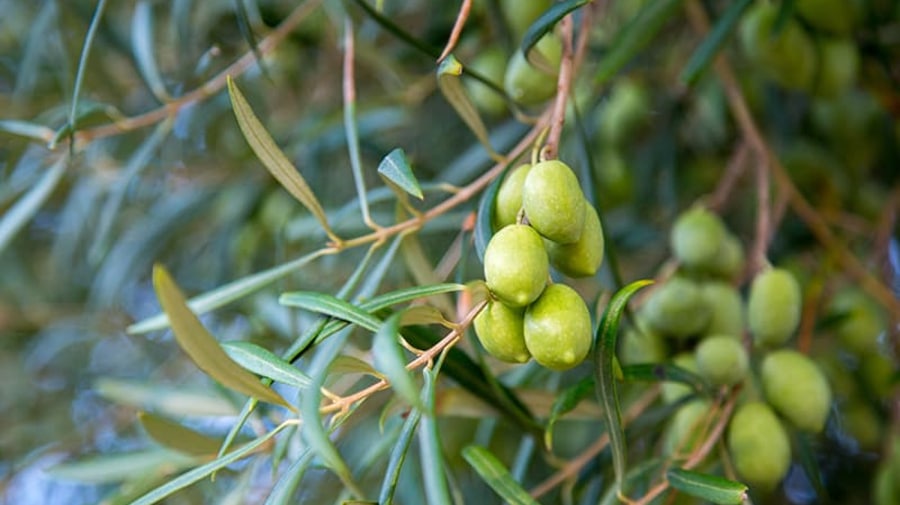
When preparing a burnt offering, God instructed Moses to prepare the meal with fine flour mixed with a quarter hin (one and one third gallones) of olive oil. Olive oil is recognized as one of God’s greatest natural gifts to mankind.
It was used for anointing the kings and the elements in the tabernacle.
When we visited Israel for our mission to build a biblical foods garden in the center of Jerusalem, we took time to harvest olives.
It was so fascinating to see the use of a rake to brush the trees to get the olives to release. We had to be careful not to let the olives be bruised.
Olives are very bitter at first. It takes time to bring them to a flavor that is most palatable. Oh, but when this is done, the whole body says, “Hooray!”
Olive Oil Nutrition Facts
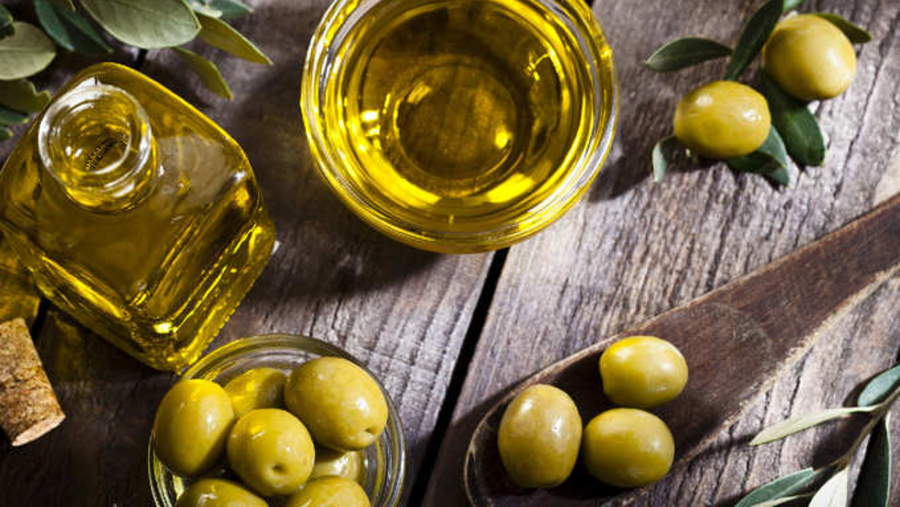
There are four pressings of olives that bring forth the olive oil:
Extra virgin: the first pressing from the olives and the purest - this was used for anointing.
Virgin: second pressing used for lighting the temple.
Pure: olive oil marked ‘pure’ has undergone some form of processing and filtering.
Extra light: this oil has been heavily processed and has very little flavor.
Long before humans knew the intricacies of the nutrients contained in olives and olive oil, they were celebrated as beneficial.
Now, science has shown us why.
Olive oil is mostly (about ¾) monounsaturated fats. The rest is polyunsaturated fats, both of which we know are good for us and promote health.
Olive Oil Benefits

Because they’re rich in these “good” fats, olives and olive oil:
- Strengthen cell membranes
- Retard cancer growth
- Lower bad cholesterol and raise good cholesterol
- Reduce the production of gallstones
- Have healing and anti-inflammatory effects
- Stimulate bile flow
- Improve brain maturation
- Stimulate the production of fat-digesting enzymes in the pancreas
- Reduce gastric acidity
- Protect against ulcers
- Help prevent constipation
- Aid normal bone growth
- Are rich in vitamin E, one of the best antioxidants available
If you’re trying to reduce the amount of fat in your diet to avoid the risk of heart disease, think of olive oil as an ideal replacement for other oils and fats. Anything that can be sautéd in butter, can be sautéd in olive oil.
Not only will you be helping your heart, but also you will be pleasing your taste buds.
And remember, extra virgin olive oil (EVOO) is from the first press, and therefore closest to the way God designed it and the best choice.
It may cost a little more, but EVOO contains more of those natural ingredients credited with fighting heart disease. When it comes to olive oil, we get what we pay for.
Investing in quality food is cheaper than medicine!
Olive Oil Natural Remedies
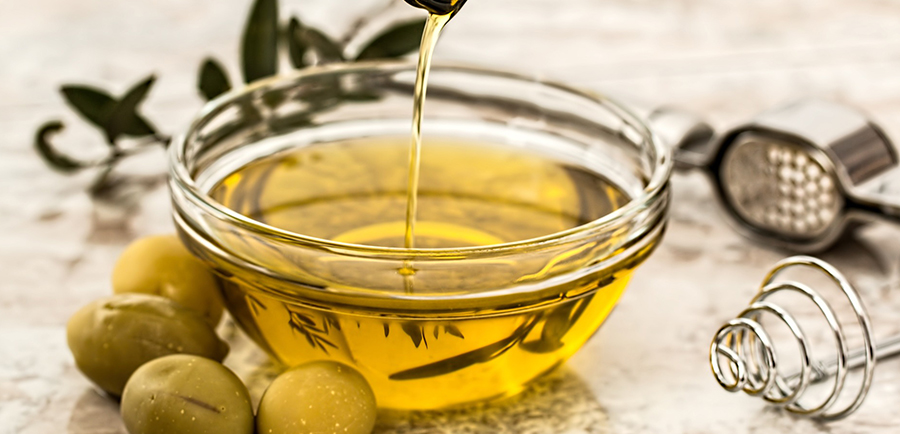
Olive oil is useful for so much more than nutrition, even though that would be enough. It can be used for several benefits we’ll all want to celebrate.
For Shining Hair: After shampooing, rub in a mixture of olive oil and egg yolk and the juice of one lemon. Leave in 5 minutes and wash out.
To Prevent Dandruff: Rub a mixture of olive oil and cologne into the hair and scalp. Rinse.
For Dry Skin: Make a face mask with an avocado and olive oil. Leave on for 10 minutes and rinse.
To Prevent Wrinkles: Rub a mixture of olive oil and the juice of a lemon into the skin before going to bed.
To Soften the Skin: Mix together equal parts of olive oil and salt. Massage in well, then wash off with cool water.
For Weak Nails: soak the nails for 5 minutes in warm olive oil. Then pat the nails with white iodine.
For Tired Feet: Massage with olive oil.
For Aching Muscles: Massing with a mixture of olive oil and rosemary.
To Clear Acne: Try a mixture of 8 ounces olive oil and 10 drops of lavender oil.
For High Blood Pressure: Boil 24 olive leaves in 8 ounces of water for 15 minutes. Allow to cool. Drink the infusion morning and night for two weeks.
Caution: Olive oil has a slightly laxative effect, so when you are changing over to olive oil in your diet make sure to do so gradually. Also it is imperative to consult your doctor before making any changes to your prescriptions or use this information for medical advice.
Good Fats for You
My hope and desire is that the issue of fats, beneficial versus harmful, is clearer to you.
In all aspects of healthy living, we want to fill our recipe box with the best ingredients. Good oils definitely go on the grocery list!
Instead of following fads or fashionable diet trends, we aim to gain abundant health and vitality by looking to God’s Word and principles. Each and every time we do, our cup of blessings will fill to overflowing. A great place to start is with this list of foods in the Bible.
But let’s not neglect the most important ingredient which is God’s love for you.
He loves you with a perfect, everlasting love!
Keep that as the key ingredient to the dishes of life every day and each day you’ll be able to say, “Today is an Amen Day!

